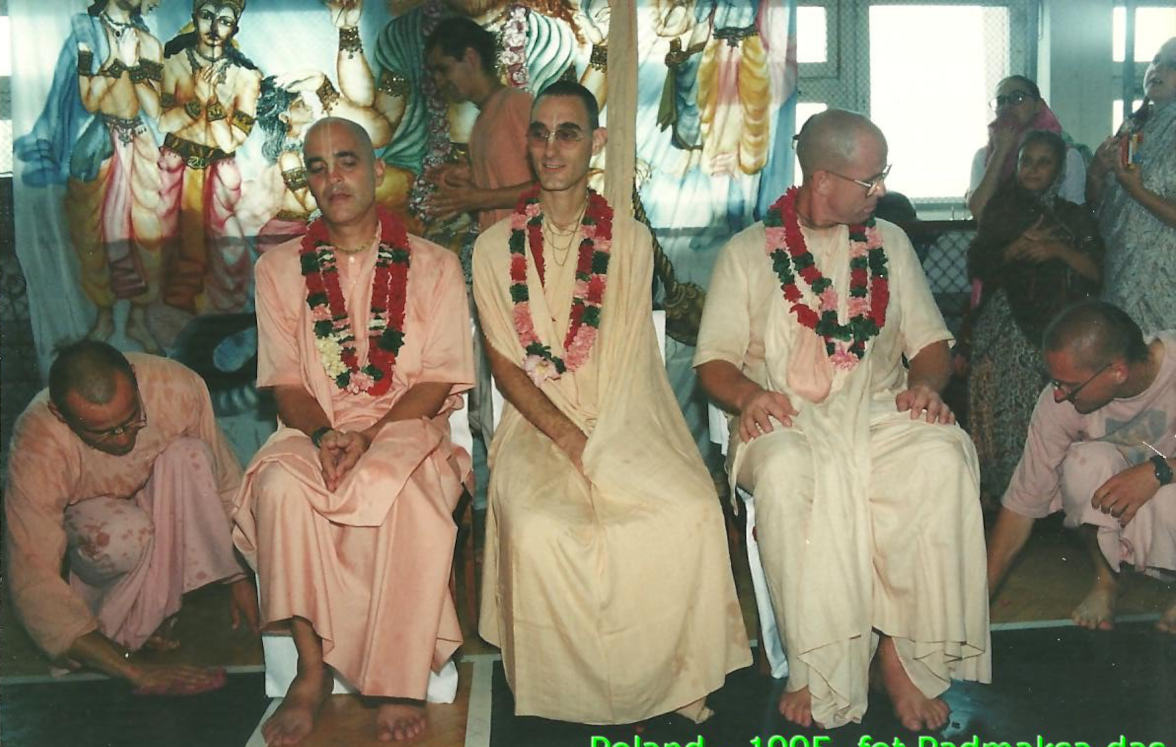
Prabhu: It appears that, at least by experience then when devotees get into this kind-of situation, when they have a falldown, and everybody is kind-of 'I don't want to deal with him,' 'Better to stay away from this guy at least for some time, and then we will see...' and then instead of engaging him in devotional activities everybody is kind-of not sure. And then the devotee himself doesn't know what to do, then if he is strong enough he is continuing, and if he is not, in most cases, that's what happens, he just walks away. And then he feels guilty, 'I don't know what...'
His Holiness Bhaktividyā Pūrṇa Svāmī Mahārāja: And then he can't come back. Takes him ten years, and then he will come back...
Prabhu: So why does this happen?
HH BVPS Mahārāja: Because they are not friends. See, friend means when things are good you are friend and when things are bad you are a friend. If you are only a friend when things are good you are not actually a very good friend. That’s the nīti, that is Dharma-śāstra. It is the śāstra that says like this. So, friendship is tested in adversity. If you still support even when they have trouble, that means there is friendship. And if you don’t, that means the friendship wasn’t really there.
Prabhu: It wasn't?
HH BVPS Mahārāja: Yeah, was not there. It wasn’t very deep, means there was, may have been something, but it was very shallow. Because shallow means it could be there and then go away. If there is some depth to it then it doesn’t matter what happens, it will work. So there is a concern. So before things will be more out in the open because there was more of that friendship, so everybody could have heard about it, but no one will feel bad about it. And everybody will be trying to support and give some direction. So it wasn’t the matter because everyone was truthful or this or that, no, because of the closeness. Now because no one is close, therefore it’s just based on the mundane quality of truth, that’s why it should be brought out. Because otherwise what am I going to talk about? Because if I have no relationship, why they should talk to me? Because technically, unless you are going to give some support, you are going to do something for them, there is no meaning to this 'truth.' You only require to be truthful with truthful persons. It is not a rule that you have to tell truth to liars. Do you understand? Truth is told to truthful people. So this idea, that 'No, but you have to tell us the truth.' Why does he have to tell the truth? Based on what? Are you going to do something for him? Means, as it is you don't do anything for him. Then if he does something wrong, then if he tells you the truth, then you are going to do something difficult for him. So what is the authority? Do you understand? Because we are talking about relationships. We have boiled them down to they are just positions, but the point is, it is relationship. Not positions. Is the mother and father just the authority in the house, or is it a relationship? You can say, legalistically, yeah, when there is a divorce and they fight over the kid, then it is a matter of just the husband and wife and parent and child, that's all. There is no relationship element. But in actuality the relationship in the family is based on that, not on position.
So the point is is, if one’s position in the society is simply because it is a position, it doesn’t mean you technically have the authority in people’s personal life. So if you are not going to take responsibility, then don’t deal with it, or just say 'You are not welcome here, go somewhere else.' That is also appropriate. The Vedic thing, if someone doesn’t work, you can tell him to go. But no punishment is administered. Because only if they accept your authority and all this and that, then you have a position of authority, an actual, means, responsible. Authority goes with responsibility. If you are not responsible, you are actually not an authority.
